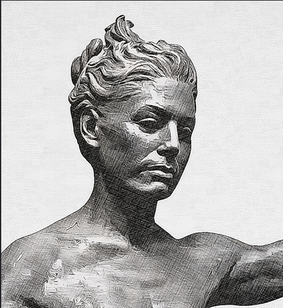Sabin Howard Blog
SABIN HOWARD SCULPTURE
Sabin Howard sculptures are classical figures that feel thoroughly modern while recalling the mastery of the Renaissance and ancient Greece.
CONTACT ME
info [at] sabinhoward.com

Sabin Howard sculptures are classical figures that feel thoroughly modern while recalling the mastery of the Renaissance and ancient Greece.
info [at] sabinhoward.com
